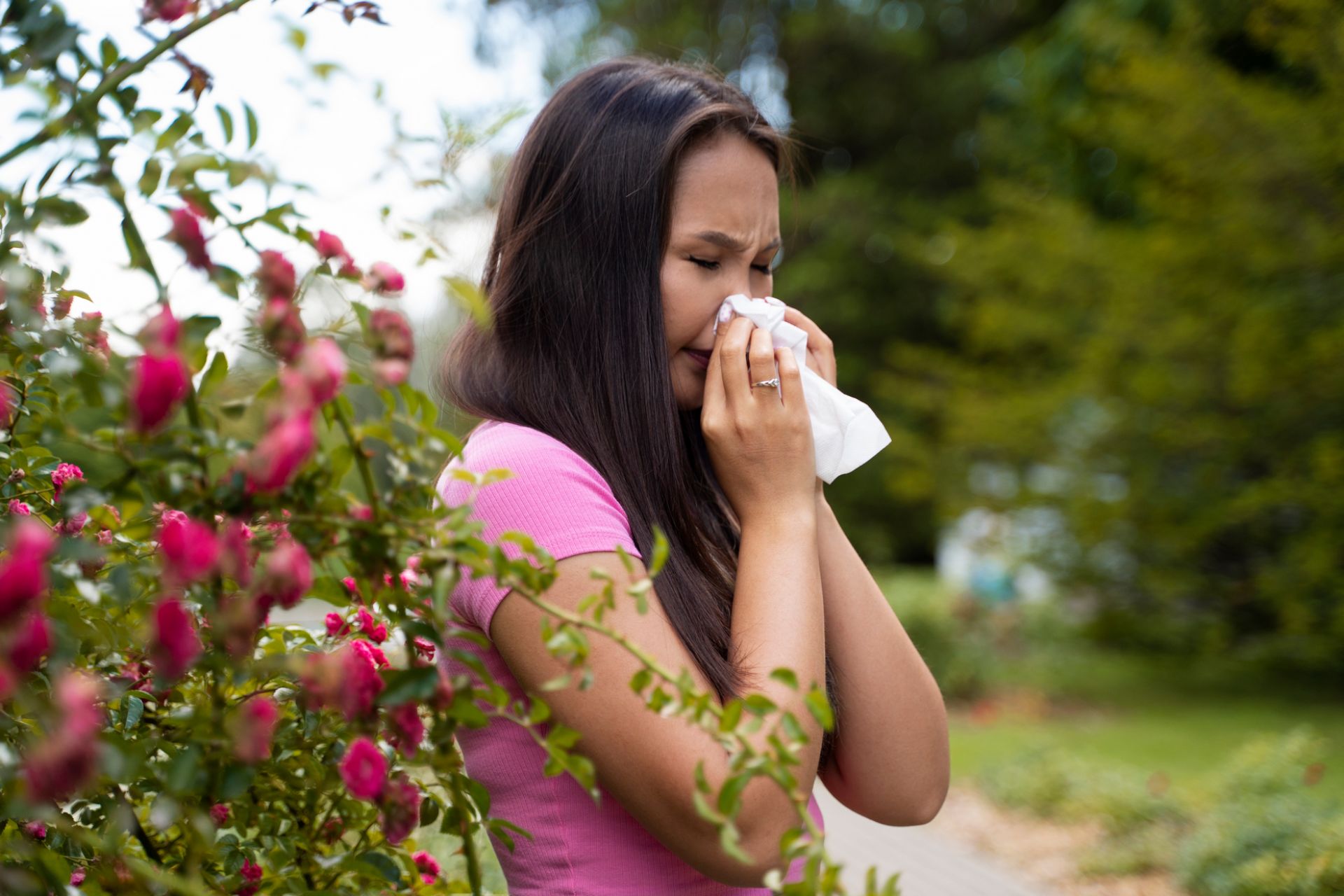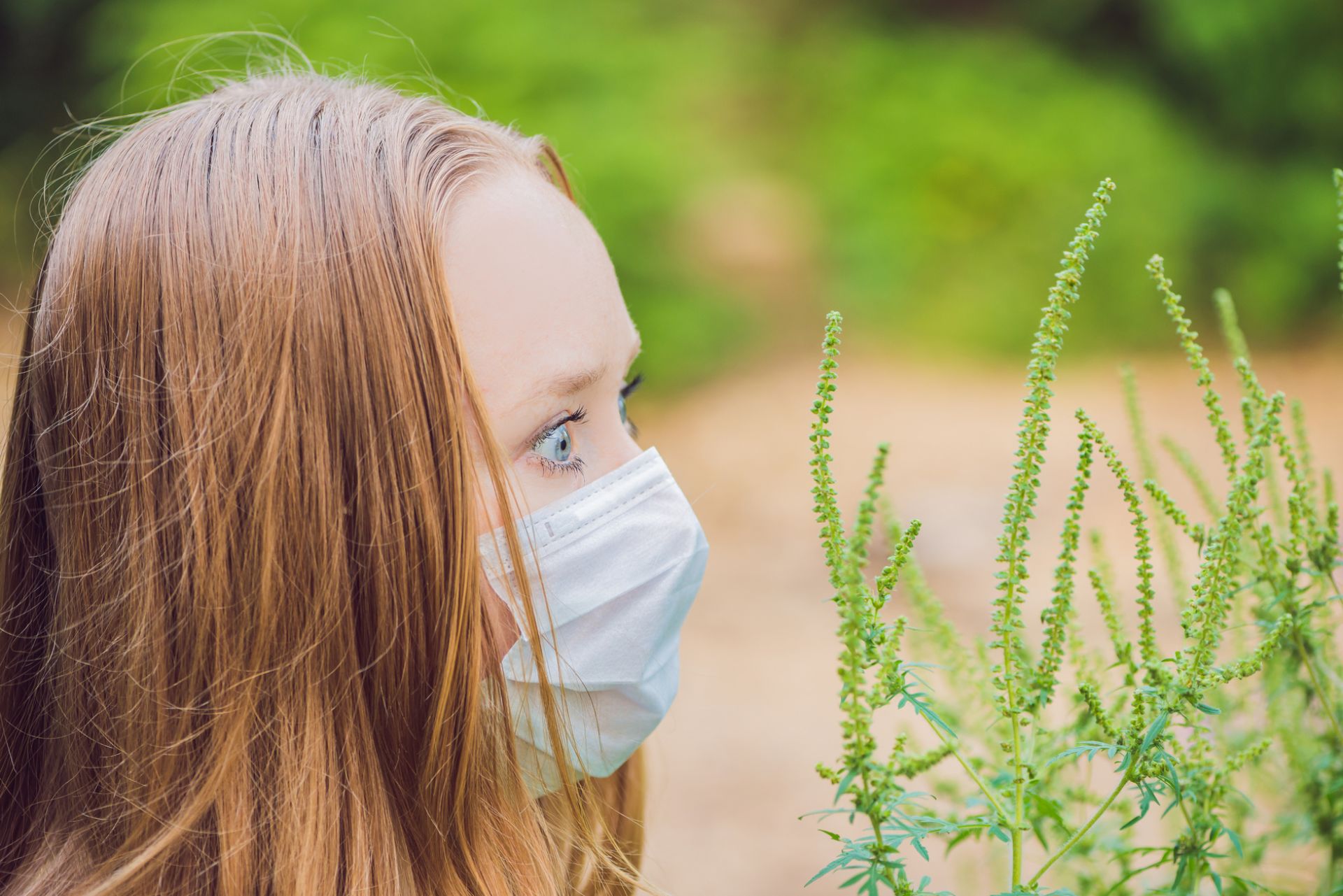A short sneeze, then another and another, cascading. It doesn't seem to stop. The eyes turn red, the nose becomes a veritable fountain of undrinkable water. You even get a cough, your eyes itch and you don't know what to do. You think you have a cold, but... you have allergic rhinitis! When a "cold" lasts more than a week, it could be an allergy. But to what? You go to the doctor, do your blood tests and find out that you are allergic to... ragweed.
An allergist can tell you during an online consultation whether your symptoms are from a cold or an allergy and can recommend the appropriate tests for your case.
Ambrosia allergy is one of the most widespread in Europe, all the more so since the pollen of this plant is present in the atmosphere from the beginning of August, even from July, and until the weather gets seriously cold, in November. An airborne concentration of 30 pollen particles/m3 is sufficient to induce an allergic reaction.
Due to climatic changes, the period during which ragweed produces pollen is getting longer and longer, as a result, the period during which people allergic to ragweed suffer has increased in recent years.
What are the symptoms of a ragweed allergy?
The symptoms are very annoying: from sneezing, congestion or even nasal obstruction, rhinorrhea, nasal itching, to itching in the ears and roof of the mouth, swelling and redness of the eyes and respiratory tract, gradual or even total loss of smell, pain in head and ears, chronic fatigue, sleepiness and general malaise, including asthmatic illness (with coughing fit or suffocation). With such symptoms, allergy is no joke. Seeing a doctor is imperative.
Ragweed allergy, like all allergies, can occur at any age
No one is born with allergies. The first step in developing an allergy occurs when an allergy-prone person comes into contact with a normally harmless substance, such as ragweed pollen. The allergic reaction is actually an overreaction of the body to a substance otherwise harmless to the rest of the mortals. Allergies can appear at any age and can significantly affect your overall health. It is the allergist who decides what options the patient has.
What medical tests should be done?
To confirm ragweed allergy, two types of tests can be done: skin or blood tests. The most conclusive are blood tests. They aim to identify in the blood the antibodies that the body produces in response to an allergen.
Blood tests are indicated for people who cannot have a skin test due to dermatological problems or drug treatments incompatible with this procedure, as well as if allergic reactions are extremely severe. The treatment options recommended by allergists for allergic rhinitis are of two types: non-medicated (avoidance of the allergen and natural remedies) and medicated: anti-inflammatory nasal sprays for allergies, antihistamine medication (released on the basis of medical prescription).
Ambrosia can cause three types of allergies at once: allergic rhinitis, allergic conjunctivitis and allergic asthma. If you have allergy tests already done, an option to have quick access to treatment is telemedicine. The main advantage of telemedicine is represented by the quick obtaining of answers without the need to travel to a medical office, but also the lower price of the online consultation.
Tips to prevent ragweed allergy:
● Avoid outdoor activities especially in the morning, when the amount of pollen is higher!
● Keep the windows in your home closed during the day and use an air conditioner with special anti-allergen filters!
● Take a shower as soon as you get home and put all the clothes you wore in the washing machine!
● Wash your hair every time you shower, because it's a perfect environment for pollen to stick to!
● Wash your face and hands frequently!




